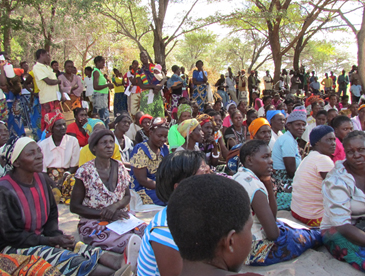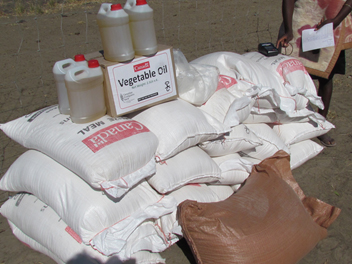When the call came from World Renew to inform us there was an immediate need for IRMs we were eager and willing to go. The project in Zambia had been extended and they needed IRMs there for the next three months. Toni and George Fernhout, experienced IRMs, were already in Zambia and would be leaving at the end of April. In order to have enough time for an orientation with them before they left Zambia, we were packed up and on our way within 10 days.
This harvest will depend on the rains coming in time.
After two long overnight flights, Toni and George met us at the airport in Livingstone. Arriving in Mwandi, the district World Renew is working in, we soon settled into our house on the beautiful Zambezi River. During the week of orientation we got to know the village, the project, where to shop, and where to buy ‘talk time’ cards for the phone and data for the internet. We were sorry to say goodbye to our mentors. George drove to the airport where we said our good-byes and then Tony took over driving the Ford Ranger. It’s a very strange feeling driving on the ‘wrong’ side of the road. Even stranger is manually shifting with your left hand and sitting in the right hand driver’s seat! Happy the gas pedal was still with the right foot!

The farmers are hopeful that this year’s rains will produce a substantial crop.
It’s now the dry season with no rain expected until November or December, and there will not be another harvest until April 2017. This harvest will depend on the rains coming in time.
The Mwandi district has suffered severe droughts in the past three growing seasons. The last planting season in 2015 saw much of the crops dry up due to the late rains. Western Zambia, where Mwandi is found, is on the fringe of the Kalahari Desert and therefore has six weeks less rainfall than the more productive areas of central and eastern Zambia. Since the growing season is shorter, farmers use a variety of maize that can be grown in 90 days to ensure a harvest at the end of the rains. The farmers are hopeful that this year’s rains will produce a substantial crop.

Blessings,
Tony and Mary DeKoter
International Relief Managers
World Renew Zambia



